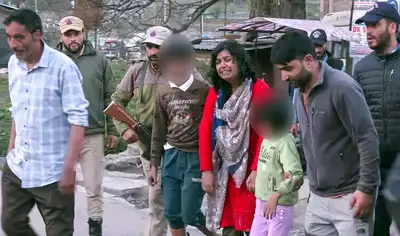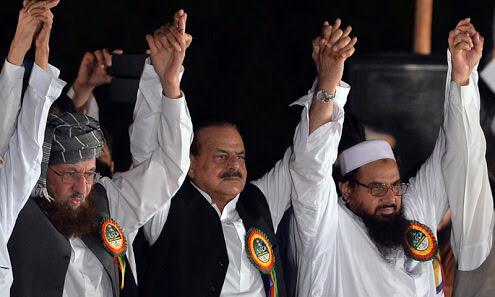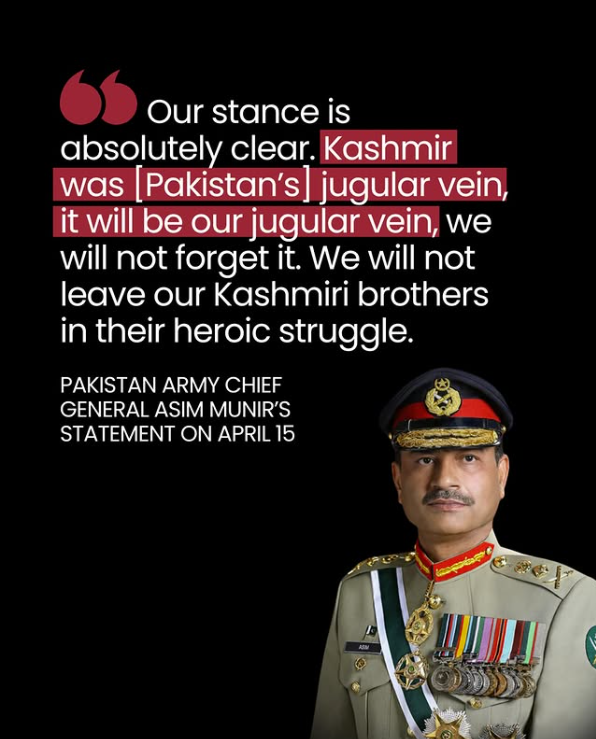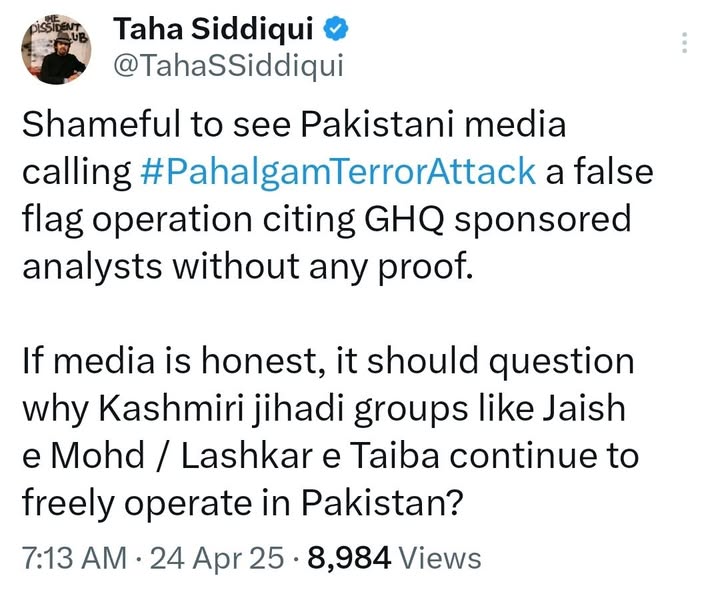Pahalgam Attack and the Shadows of Cross-Border Militancy: A Critical Reflection – by Muhammad Faisal Younus
The Pahalgam Attack marks a tragic and horrifying chapter in the history of Kashmir. Innocent tourists were brutally targeted—singled out and killed after being asked about their religion. Among the victims was a Muslim pony rider who displayed extraordinary courage by attempting to snatch a weapon from one of the attackers. He was shot and killed for his brave resistance.

This devastating incident also exposes a serious security lapse. Pahalgam is one of the most patrolled and sensitive areas in Jammu & Kashmir, renowned for its scenic beauty and religious significance. That militants managed to infiltrate such a high-security zone, execute a coordinated and deadly assault, and escape without immediate interception is a grave failure of intelligence and ground-level preparedness. The public deserves accountability from those entrusted with the region’s safety.
In the aftermath, the response of local Kashmiris stood in stark contrast to the attackers’ brutality. Locals rushed to help the terrified tourists—offering them shelter in homes, mosques, and temples. Many arranged free transportation, guided the tourists to safety, and provided food and comfort during a time of panic. Several survivors later spoke to the media, praising the incredible hospitality and humanity shown by the Kashmiri people, a heartening reminder of unity in the face of terror.

Yet, this attack is part of a troubling and familiar pattern. For decades, Pakistan’s military establishment has been accused of fostering and exporting terrorism across its borders. These accusations are not without foundation. During the Afghan Jihad, billions in foreign aid flowed into Pakistan to train and arm militant groups—many of which were later redirected toward Kashmir. Throughout the 1980s and 1990s, Pakistani media openly celebrated these organizations and their leaders, portraying them as ‘freedom fighters.’ After the 9/11 attacks, intense global pressure—particularly from the United States—compelled General Pervez Musharraf to outlaw some of these groups. But by then, their networks had taken deep root.

If the Financial Action Task Force (FATF) were to analyze archival records from Pakistani newspapers and policy statements of that era, it would be difficult for Pakistan to escape renewed scrutiny. The evidence of both financial and ideological support for terror outfits is extensive and undeniable.
Adding to suspicions, just days before the Pahalgam attack, Pakistan’s Chief of Army Staff, General Asim Munir, made controversial remarks. He declared that “Kashmir will one day be part of Pakistan” and asserted that Pakistan is ready to fight “ten more wars” over the issue. Such rhetoric, when followed by deadly cross-border terrorism, raises deeply concerning questions about state complicity or at least tacit endorsement of violence.

Exacerbating this situation is the role of the Pakistani media. Instead of condemning the attack or mourning the innocent lives lost, much of the Pakistani press chose to frame the tragedy as a “false flag” operation orchestrated by India. This conspiracy-laden narrative not only deflects responsibility but actively shields the real perpetrators. It’s an affront to the truth and a grave injustice to the victims and their grieving families.

The Pahalgam attack is not an isolated act of violence. It follows a recognizable pattern that includes previous attacks like Pulwama (2019) and Uri (2016)—both traced back to Pakistan-based groups. These strikes often coincide with internal turmoil in Pakistan, leading many analysts to view them as geopolitical distractions or strategic messages orchestrated by powerful factions within the state.
Justice must be served for the victims of this heinous act. But more importantly, there must be a long-term, united effort by the international community to confront and dismantle the roots of such terror. Countries and institutions that enable, protect, or turn a blind eye to terrorism must be held accountable—regardless of their strategic alliances. Failing to do so only perpetuates the cycle of violence, emboldens the perpetrators, and threatens global peace.

Leave a Reply